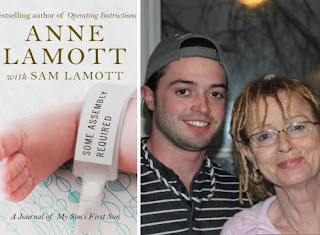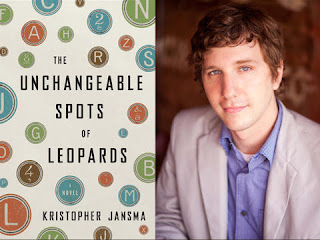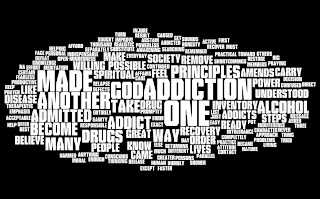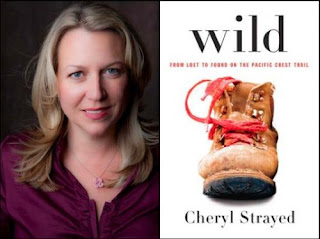Episodes
Monday Apr 29, 2013
The Rebirth of a Great American School System
Monday Apr 29, 2013
Monday Apr 29, 2013
 There is an apocryphal story about the state of education, which tells the tale of a man who falls asleep, ala Rip Van Winkle, 100 years ago. He wakes up today and is totally disoriented. Everything is new and different. Transportation, technology, design, fashion, entertainment....then he stumbles into a school, into a 21st century classroom and suddenly he feels calm, at home....because, well because almost nothing has changed.
There is an apocryphal story about the state of education, which tells the tale of a man who falls asleep, ala Rip Van Winkle, 100 years ago. He wakes up today and is totally disoriented. Everything is new and different. Transportation, technology, design, fashion, entertainment....then he stumbles into a school, into a 21st century classroom and suddenly he feels calm, at home....because, well because almost nothing has changed.
Some would argue that this is part of the problem of education today. Others would argue for the value of those fundamentals; that we’ve long had many of the right ideas, but that we just needed to execute them
better.
This is where we join the conversation with UC Berkley Professor and education expert, David Kirp and his latest work Improbable Scholars: The Rebirth of a Great American School System and a Strategy for America's Schools
My conversation with David Kirp:
Wednesday Apr 24, 2013
Death on the Border
Wednesday Apr 24, 2013
Wednesday Apr 24, 2013
 In the world of extreme right wing rhetoric, particularly on the subject of immigration, it often seems that the practitioners are always upping the ante in order to get attention. Listen to any hour of talk radio and you get the idea. However, what happens when that rhetoric gets out of control. When the listeners, particularly those that are scared, marginalized or worse yet, psychotic, become easy pray to act on that rhetoric and take matters into their own hands?
In the world of extreme right wing rhetoric, particularly on the subject of immigration, it often seems that the practitioners are always upping the ante in order to get attention. Listen to any hour of talk radio and you get the idea. However, what happens when that rhetoric gets out of control. When the listeners, particularly those that are scared, marginalized or worse yet, psychotic, become easy pray to act on that rhetoric and take matters into their own hands?
Over the years we’ve seen many examples of this, and unfortunately a lot of them, for various reasons, seem to take place in Arizona.
Dave Neiwert, the founding editor of the blog Crooks and Liars, takes us inside one such group of extremists in And Hell Followed With Her: Crossing the Dark Side of the American Border
For them, killing women and children in cold blood is just the start.
My conversation with Dave Neiwert:
Wednesday Apr 24, 2013
We are all citizens of Hollywood
Wednesday Apr 24, 2013
Wednesday Apr 24, 2013
 Wherever we live, we all, to some extent live in Hollywood. We are shaped and influenced by its messages, its ideas and by connection, to it’s people. Perhaps by having a better understanding of the people that populate and drive that community, we might better understand our culture.
Wherever we live, we all, to some extent live in Hollywood. We are shaped and influenced by its messages, its ideas and by connection, to it’s people. Perhaps by having a better understanding of the people that populate and drive that community, we might better understand our culture.
A good place to start that process is a new novel by Matthew Specktor entitled American Dream Machine
My conversation with Matthew Specktor:
Monday Apr 22, 2013
Overcoming Addiction
Monday Apr 22, 2013
Monday Apr 22, 2013
The book catapulted David Sheff into becoming one of the country's most prominent and sane voices on addiction — not as a doctor, an addict or an academic, but as a father with real world experience. Now he takes a broader view of what we, as a society, are doing right and wrong in dealing with the still growing rates of addiction in this country. His new book is Clean: Overcoming Addiction and Ending America's Greatest Tragedy
My conversation with David Sheff
Monday Apr 22, 2013
The Age of the Image
Monday Apr 22, 2013
Monday Apr 22, 2013
 Every hour, 72 more hours of video are uploaded onto Youtube. The moving image has become the literature of our time. Perhaps not since the development of moveable type has the context of our world and our understanding of it, changed so dramatically.
Every hour, 72 more hours of video are uploaded onto Youtube. The moving image has become the literature of our time. Perhaps not since the development of moveable type has the context of our world and our understanding of it, changed so dramatically.
But what do we really know and understand about the “grammar” and the structure of visual communication? How are stories and our appreciation of them, different when we watch them, as opposed to reading them?
How will this new realm of visual literacy shape our children and how they see and set out to change the world?
These are some of the issues examined by Stephen Apkon, the Founder and Executive Director of The Jacob Burns Film Center, in his book The Age of the Image: Redefining Literacy in a World of Screens;
My conversation with Stephen Apkon:
Sunday Apr 21, 2013
The Long Walk
Sunday Apr 21, 2013
Sunday Apr 21, 2013
,_work_as_a_team_i.jpg) Some of our soldiers have come back from the wars in Iraq and Afghanistan missing arms and legs. We’ve heard about the phantom pain that often accompanies those losses. The feeling of pain in a limb that is no longer there. In many ways the same is true for mental anguish. For the mind also feels pain. Where once normal life occupied a space, now for many who have long since left the war zone, the psychological pain is all consuming and fills that once peaceful space.
This is part of the story of Brian Castner. Brian Castner served three tours of duty in the Middle East, two of them in Iraq as the head of the Explosive Ordinance Disposal Unit. He’s written about his difficult experiences returning home, in his book The Long Walk: A Story of War and the Life That Follows
Some of our soldiers have come back from the wars in Iraq and Afghanistan missing arms and legs. We’ve heard about the phantom pain that often accompanies those losses. The feeling of pain in a limb that is no longer there. In many ways the same is true for mental anguish. For the mind also feels pain. Where once normal life occupied a space, now for many who have long since left the war zone, the psychological pain is all consuming and fills that once peaceful space.
This is part of the story of Brian Castner. Brian Castner served three tours of duty in the Middle East, two of them in Iraq as the head of the Explosive Ordinance Disposal Unit. He’s written about his difficult experiences returning home, in his book The Long Walk: A Story of War and the Life That Follows
My Conversation with Brian Castner:
Thursday Apr 18, 2013
Children Having Children
Thursday Apr 18, 2013
Thursday Apr 18, 2013
 We baby boomers are aging. With all the talk about health care and retirement and 401k's and endless mail from the AARP, the one subject that seems to get skipped, is what it will be like being a grandparent.
We baby boomers are aging. With all the talk about health care and retirement and 401k's and endless mail from the AARP, the one subject that seems to get skipped, is what it will be like being a grandparent.
We’ve spent so many years doting on and protecting and encouraging our own children, we almost forget that we get to do it again, sort of, with our grandkids.
Fortunately for those of us that do forget, we have Anne Lamott to remind us. Always a powerful and soothing voice for her generation, Anne Lamott, in her new book Some Assembly Required: A Journal of My Son's First Son, takes us on the new and unexpected chapter in her life, her own grandmotherhood.
My conversation with Anne Lamott:
Tuesday Apr 16, 2013
The Central Park Five
Tuesday Apr 16, 2013
Tuesday Apr 16, 2013
 1989 New York was a time in which social systems were breaking down. The crime rate was peaking, crack was a serious epidemic, racial animus was strong and it was safer for black and latino teenagers to hang out in Central Park, than to hang out on the mean streets of their own neighborhoods.
Amidst this atmosphere the body of a white woman was found in the park; beaten, raped and left for dead.
This is the backdrop for what would become one of New York and the country's most infamous crimes, what was dubbed at the time as the Central Park jogger. Sarah Burns has written The Central Park Five: The Untold Story Behind One of New York City's Most Infamous Crimes
1989 New York was a time in which social systems were breaking down. The crime rate was peaking, crack was a serious epidemic, racial animus was strong and it was safer for black and latino teenagers to hang out in Central Park, than to hang out on the mean streets of their own neighborhoods.
Amidst this atmosphere the body of a white woman was found in the park; beaten, raped and left for dead.
This is the backdrop for what would become one of New York and the country's most infamous crimes, what was dubbed at the time as the Central Park jogger. Sarah Burns has written The Central Park Five: The Untold Story Behind One of New York City's Most Infamous Crimes.
Tonight her documentary, produced with her father Ken Burn, airs on PBS.
My conversation with Sarah Burns, last April:
Saturday Apr 13, 2013
Jacob Barnett explains it all to us.
Saturday Apr 13, 2013
Saturday Apr 13, 2013
 One of the all too many problems with education today, is its relentless focus on what kids can’t do, as opposed to what they do well. This is particularly profound when it come to children with special needs.
If we need evidence of this, we need look no further than the story of Kristine Barnett and her son Jacob. At age two experts said Jacob would never be able to tie his shoes. Today at 14 he’s pursuing a PhD in physics.
Unfortunately, changing the system is not enough. It takes a mother deeply committed, not only to her son, but to turning the old paradigms on their head, and not caring whose proverbial apple cart she turns over. She tells her story and Jacob’s story in The Spark: A Mother's Story of Nurturing Genius
One of the all too many problems with education today, is its relentless focus on what kids can’t do, as opposed to what they do well. This is particularly profound when it come to children with special needs.
If we need evidence of this, we need look no further than the story of Kristine Barnett and her son Jacob. At age two experts said Jacob would never be able to tie his shoes. Today at 14 he’s pursuing a PhD in physics.
Unfortunately, changing the system is not enough. It takes a mother deeply committed, not only to her son, but to turning the old paradigms on their head, and not caring whose proverbial apple cart she turns over. She tells her story and Jacob’s story in The Spark: A Mother's Story of Nurturing Genius
My conversation with Kristine Barnett:
Saturday Apr 13, 2013
What 4th Graders Teach Us About World Peace
Saturday Apr 13, 2013
Saturday Apr 13, 2013
 Amidst all the talk about the importance of education, and all the endless debates about public policy, we often forget that at the heart of the debate, is what it means to be a teacher and the awesome power and responsibility that comes with that job.
Amidst all the talk about the importance of education, and all the endless debates about public policy, we often forget that at the heart of the debate, is what it means to be a teacher and the awesome power and responsibility that comes with that job.
Imagine a teacher who does not lecture, but leads; who teaches world peace by studying war; who respects students enough to instill in them the confidence to make the world anew...even while still in the 4th grade.
This has been the work of John Hunter. John is a teacher and musician and the inventor of the World Peace Game. He is the star of the new documentary and author of the new book World Peace and Other 4th-Grade Achievements
My conversation with John Hunter:
Wednesday Apr 10, 2013
Music Piracy and the Remaking of American Copyright
Wednesday Apr 10, 2013
Wednesday Apr 10, 2013
If we understand this, if our legislators understand this, then perhaps we can undertake to redefine modern copyright and envision useful legislation and protection for the 21st Century.
Alex Sayf Cummings, at Georgia Sate University, has been looking at this issues and examines its past, present and future in Democracy of Sound: Music Piracy and the Remaking of American Copyright in the Twentieth Century
My conversation with Alex Sayf Cummings:
Tuesday Apr 09, 2013
Murder, Money and Mystery in China
Tuesday Apr 09, 2013
Tuesday Apr 09, 2013
 In November of 2011, a British businessman by the name of Neil Heywood was found dead in a hotel room in China. The reverberations of that death would reveal both deep and systemic corruption as well as surprising layers of conflict within the Chinese Communist Party.
It’s a human story of lust and greed, that also gives us some unique insights into a society and a political system, often cloaked in enigma and mystery.
Chinese writer, journalist and translator Wenguang Huang, in his book A Death in the Lucky Holiday Hotel: Murder, Money, and an Epic Power Struggle in China,
In November of 2011, a British businessman by the name of Neil Heywood was found dead in a hotel room in China. The reverberations of that death would reveal both deep and systemic corruption as well as surprising layers of conflict within the Chinese Communist Party.
It’s a human story of lust and greed, that also gives us some unique insights into a society and a political system, often cloaked in enigma and mystery.
Chinese writer, journalist and translator Wenguang Huang, in his book A Death in the Lucky Holiday Hotel: Murder, Money, and an Epic Power Struggle in China, takes us deep inside a system we hardly understand, but one that still shapes our world and in turn, our lives.
My conversation with Wenguang Huang:
Monday Apr 08, 2013
Between Man and Beast
Monday Apr 08, 2013
Monday Apr 08, 2013
 Just as the politics our our time, often makes it difficult for science to find its way, so too was this the case in Victorian times. No where is this more in evidence than in the adventurers of a young man who would emerge from the jungles of Africa with evidence of great mysteries. Mysteries that would be co opted by one of the greatest scientific debates of the time; the arguments about evolution.
This the the story that former Washington Post reporter Monte Reel lays out in Between Man and Beast: An Unlikely Explorer, the Evolution Debates, and the African Adventure that Took the Victorian World by Storm
Just as the politics our our time, often makes it difficult for science to find its way, so too was this the case in Victorian times. No where is this more in evidence than in the adventurers of a young man who would emerge from the jungles of Africa with evidence of great mysteries. Mysteries that would be co opted by one of the greatest scientific debates of the time; the arguments about evolution.
This the the story that former Washington Post reporter Monte Reel lays out in Between Man and Beast: An Unlikely Explorer, the Evolution Debates, and the African Adventure that Took the Victorian World by Storm.
My conversation with Monte Reel:
Saturday Apr 06, 2013
Secrets and Lies
Saturday Apr 06, 2013
Saturday Apr 06, 2013
 The great French novelist Andre Malraux once wrote that “man is not what he thinks he is, he is what he hides.” Certainly the secrets we all keep as individuals and as families place a heavy burden on us. Too often we think we are keeping secrets, when all we really are doing is hiding truth them from ourselves.
The great French novelist Andre Malraux once wrote that “man is not what he thinks he is, he is what he hides.” Certainly the secrets we all keep as individuals and as families place a heavy burden on us. Too often we think we are keeping secrets, when all we really are doing is hiding truth them from ourselves.
For a long time this was Michael Hainey story, as he knew that someday he had to find out what really happened with respect to his fathers death. He was only six at the time, by years later he would know that something was not right about what he had been told. As he approached his fathers age, when he died, he would work hard to uncover that secret and in so doing free himself, his mother and his brother.He lays out his story in this memoir After Visiting Friends: A Son's Story.
My conversation with Michael Hainey:
Friday Apr 05, 2013
WILD
Friday Apr 05, 2013
Friday Apr 05, 2013
Thursday Apr 04, 2013
Creative Destruction for Dictators
Thursday Apr 04, 2013
Thursday Apr 04, 2013
 We are always talking about how some area of our lives has been changed by creative destruction. We know that it’s widespread and impactful. In fact, even dictators today have felt the results of this creative destruction.
It’s much harder and more complex to be a dictator today. Dictatorships have had to become more sophisticated and savvy. Brutal repression has been largely replaced with subtle coercion. But at the same time, the individuals challenging dictatorships have also evolved. And while popular movements may seem spontaneous and romantic, they are in reality very strategic and organized, sometimes for years before we pay any attention.
Journalist William Dobson, foreign affairs editor of Slate and a former editor at Foreign Affairs, Newsweek International and Foreign Policy, has been looking deeply into these changes. He argues in his book The Dictator's Learning Curve: Inside the Global Battle for Democracy,
We are always talking about how some area of our lives has been changed by creative destruction. We know that it’s widespread and impactful. In fact, even dictators today have felt the results of this creative destruction.
It’s much harder and more complex to be a dictator today. Dictatorships have had to become more sophisticated and savvy. Brutal repression has been largely replaced with subtle coercion. But at the same time, the individuals challenging dictatorships have also evolved. And while popular movements may seem spontaneous and romantic, they are in reality very strategic and organized, sometimes for years before we pay any attention.
Journalist William Dobson, foreign affairs editor of Slate and a former editor at Foreign Affairs, Newsweek International and Foreign Policy, has been looking deeply into these changes. He argues in his book The Dictator's Learning Curve: Inside the Global Battle for Democracy, that ultimately dictators cannot learn or adapt as quickly as the forces that oppose them.
My conversation with William J. Dobson:
Wednesday Apr 03, 2013
Secrets of Happy Families
Wednesday Apr 03, 2013
Wednesday Apr 03, 2013
 Families are a little like snowflakes. No two are exactly alike. That’s why it often seems so ridiculous that so many people think they know what is best for families. The strict structure of the Chinese, the laissez faire of the French, the coolness of the British...all work and all don’t. It seems no one really has the magic formula. Therefore, maybe a little common sense is a good idea.
Families are a little like snowflakes. No two are exactly alike. That’s why it often seems so ridiculous that so many people think they know what is best for families. The strict structure of the Chinese, the laissez faire of the French, the coolness of the British...all work and all don’t. It seems no one really has the magic formula. Therefore, maybe a little common sense is a good idea.
That's what best selling author Bruce Feiler set out to discover. He set out on a three-year journey to find the smartest ideas, cutting-edge research, and novel solutions to make his family happier. Instead of the usual psychologists and family “experts,” he sought out the most creative minds from Silicon Valley to top negotiators at Harvard. Feiler then tested these ideas with his own wife and kids and writes about it in The Secrets of Happy Families: Improve Your Mornings, Rethink Family Dinner, Fight Smarter, Go Out and Play, and Much More.
My conversation with Bruce Feiler:
Wednesday Apr 03, 2013
Truth, Lies and The Unchangeable Spots of Leopards
Wednesday Apr 03, 2013
Wednesday Apr 03, 2013
 We’ve talked often about the obligations and responsibilities of memoir and the way in which our memory, more than our truth, shapes our past. Imagine if fiction took on this confusion. If even in the context of fiction, we would lose sight of the truth, in favor of memory, experience and peer pressure. That's some of the backdrop for a new novel, The Unchangeable Spots of Leopards, by Kristopher Jansma.
My conversation with Kristopher Jansma:
We’ve talked often about the obligations and responsibilities of memoir and the way in which our memory, more than our truth, shapes our past. Imagine if fiction took on this confusion. If even in the context of fiction, we would lose sight of the truth, in favor of memory, experience and peer pressure. That's some of the backdrop for a new novel, The Unchangeable Spots of Leopards, by Kristopher Jansma.
My conversation with Kristopher Jansma:
Tuesday Apr 02, 2013
What makes Buzz?
Tuesday Apr 02, 2013
Tuesday Apr 02, 2013
 Why do certain products and ideas become so popular? Why are some stories and rumors more infectious than others, and what makes some online content go viral?
Why do certain products and ideas become so popular? Why are some stories and rumors more infectious than others, and what makes some online content go viral?
These are just a few of the questions that Wharton marketing professor Jonah Berger takes up in his new book Contagious: Why Things Catch On.
Berger has spent 10 years studying social influence and according to Berger, the key to making things really popular happens long before it’s discussed at the water cooler, or “liked” online. It starts with the message.
My conversation with Jonah Berger:
Sunday Mar 31, 2013
Dollars & Sex
Sunday Mar 31, 2013
Sunday Mar 31, 2013
 The song says "money can’t buy me love." But we know that’s not really true. The fact is, the same market forces that drive our economy, also drive our search for sex and love. Issues like abundance, scarcity, the price of commodities...like beer, all contribute to who we choose and the success and failure of those relationships.
The song says "money can’t buy me love." But we know that’s not really true. The fact is, the same market forces that drive our economy, also drive our search for sex and love. Issues like abundance, scarcity, the price of commodities...like beer, all contribute to who we choose and the success and failure of those relationships.
In 2008 Marina Adshade launched an undergraduate course, at the University of British Columbia, titled Economics of Sex and Love, which invited her students to approach questions of sex and love through an economist's lens. The class was an immediate hit with students and, by the time the first term started, had generated international media attention. Now the book, Dollars and Sex.
My conversation with Marina Adshade:




